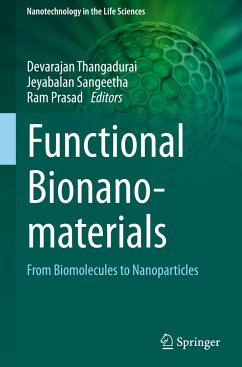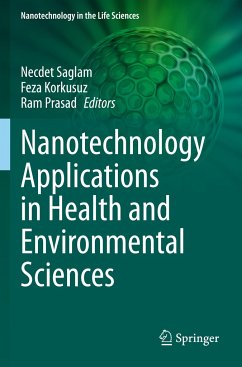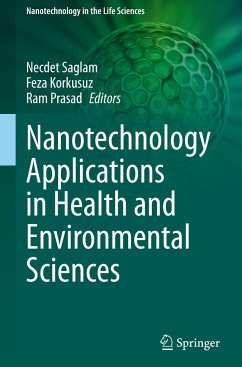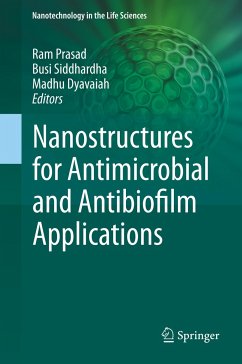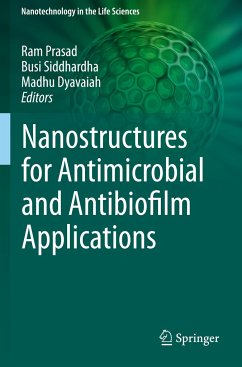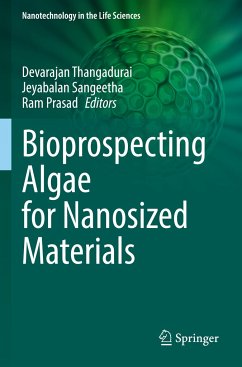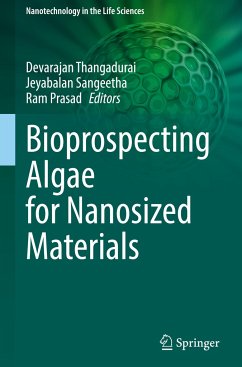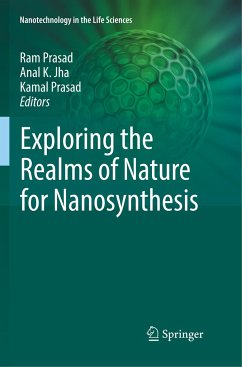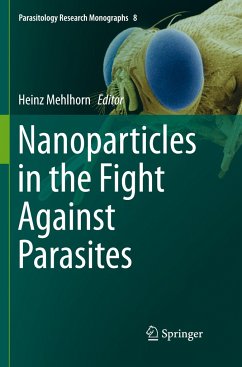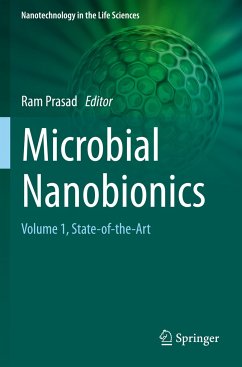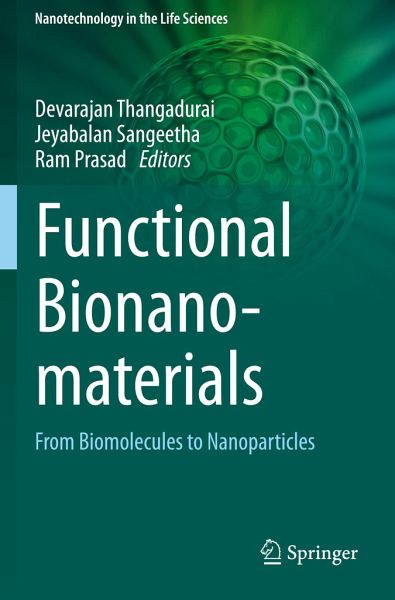
Functional Bionanomaterials
From Biomolecules to Nanoparticles
Herausgegeben: Thangadurai, Devarajan; Sangeetha, Jeyabalan; Prasad, Ram
Versandkostenfrei!
Versandfertig in 6-10 Tagen
129,99 €
inkl. MwSt.

PAYBACK Punkte
65 °P sammeln!
This book focuses on the application of nanotechnology in medicine and drug delivery, including diagnosis and therapy. Nanomedicine can contribute to the development of a personalized medicine both for diagnosis and therapy. By interacting with biological molecules at nanoscale level, nanotechnology opens up an immense field of research and applications. Interactions between artificial molecular assemblies or nanodevices and biomolecules can be understood both in the extracellular medium and inside human cells. Operating at nanoscale allows exploitation of physical properties different from th...
This book focuses on the application of nanotechnology in medicine and drug delivery, including diagnosis and therapy. Nanomedicine can contribute to the development of a personalized medicine both for diagnosis and therapy. By interacting with biological molecules at nanoscale level, nanotechnology opens up an immense field of research and applications. Interactions between artificial molecular assemblies or nanodevices and biomolecules can be understood both in the extracellular medium and inside human cells. Operating at nanoscale allows exploitation of physical properties different from those observed at microscale, such as the volume to surface area ratio.
A number of clinical applications of nanobiotechnology, such as disease diagnosis, target-specific drug delivery, and molecular imaging are being investigated. Some promising new products are also undergoing clinical trials. Such advanced applications of this approach to biological systems will undoubtedly transform the foundations of diagnosis, treatment, and prevention of disease in the future.
Nanomedicine sales reached $16 billion in 2015, with a minimum of $3.8 billion in nanotechnology R&D being invested each year. Global funding for emerging nanotechnology increased by 45% per year in recent years, with product sales exceeding $1 trillion in 2013. As the nanomedicine industry continues to grow, it is expected to have a significant impact on the global economy.
This book provides clear, colorful and simple illustrations, tables, and case studies to clearly convey the content to a general audience and reader. This book also discusses the development of nanobiomaterials from biogenic (biological sources) systems for healthcare and disease therapies. This book, therefore, is useful for researchers and academicians in the fields of nanotechnology, medicine, nano-biotechnology and pharmacology.
A number of clinical applications of nanobiotechnology, such as disease diagnosis, target-specific drug delivery, and molecular imaging are being investigated. Some promising new products are also undergoing clinical trials. Such advanced applications of this approach to biological systems will undoubtedly transform the foundations of diagnosis, treatment, and prevention of disease in the future.
Nanomedicine sales reached $16 billion in 2015, with a minimum of $3.8 billion in nanotechnology R&D being invested each year. Global funding for emerging nanotechnology increased by 45% per year in recent years, with product sales exceeding $1 trillion in 2013. As the nanomedicine industry continues to grow, it is expected to have a significant impact on the global economy.
This book provides clear, colorful and simple illustrations, tables, and case studies to clearly convey the content to a general audience and reader. This book also discusses the development of nanobiomaterials from biogenic (biological sources) systems for healthcare and disease therapies. This book, therefore, is useful for researchers and academicians in the fields of nanotechnology, medicine, nano-biotechnology and pharmacology.



